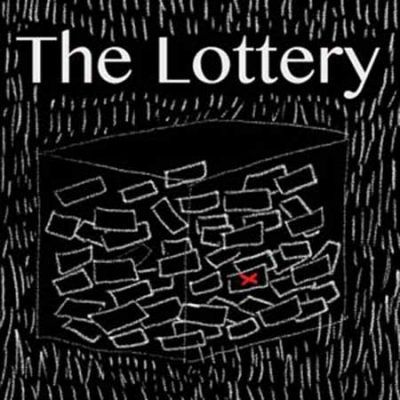Incredibly influential, Shirley Jackson died aged only 48 back in the 1960s. I sense that while some of her acolytes (and their students) are well known Jackson herself has declined in fame. If a young person has encountered Jackson, it’s most likely thanks to the film adaptation of The Haunting, in which an attempt to probe the secrets of an ancient house goes very badly indeed (and the second, lesser, adaptation at that.). “The Lottery” is a more constrained affair than The Haunting. It’s a simple account of annual celebration that binds a small community together. A classic or superseded by more recent works?
Let’s find out…
I feel like the story expected me to read this initially believing everything was fine, and then slowly realize that there was something terrible happening. However, I was already convinced that everything would be awful just from reading the title. It’s probably The Hunger Games’ fault, but I assume that any lottery in speculative fiction is going to be terrible and horrifying by default.
I liked how the story slowly confirmed my theory that everything was going to be awful, and that the ending didn’t feel like it came out of nowhere. I liked how the tension built throughout the story. This story didn’t really have much in terms of exploring characters, but I was still interested because of how it handled the feel of the events unfolding.
The lack of motivation for this system did bother me though. I guess the point is supposed to be that people do harmful things for no reason because they’ve always been done that way, but it stretches my disbelief to figure out why such a system would ever have been set up, or why nobody’s stopped it yet. It’s clearly a widespread thing, but it doesn’t seem to be enforced by anything, and there’s no hint of where it came from that stoning a person to death every year was a thing everyone agreed to do.
I’m not sure if I like this story or not. It’s definitely well written, but I’m not sure if that’s enough to compensate for my issues with the plot.
—Mikayla
My first thought was that the Lottery was actually some Wicker Man annual human sacrifice business. Turns out it was that, but also exceedingly boring. Maybe it was a twist when it was written, but it’s cliché now.
Besides some “of its time” casual sexism not much stood out about this story. At least it was short.
—Jamie
I read this in high school — it was creepily chilling then. I hadn’t overdosed on yet from the rise of YA dystopian fiction.. Also, I hadn’t read many short stories yet. Sure, I’d read a few social horrors — The Handmaid’s Tale, Brave New World, Fahrenheit 451, and Lord of the Flies — but they were exciting still and not yet passé. Since then, I’ve read and seen more. Unfortunately, this story reminds me of The Hunger Games. Yes, I know this makes no sense since “The Lottery” was written and published much, much earlier. But The Hunger Games has become its own franchise while “The Lottery” remains a semi-classic story sometimes still read by bored teenagers in stuffy classrooms. Overall, I like the story. It screams the play-on-words ‘American Gothic Horror’ to me. The quaint, realistic tone makes me assume that the setting is meant to be post-apocalyptic in some distant future. Of course, it may be that Shirley Jackson simply meant to be totally fictional or faux-historical — but it holds up best in today’s time as a The Chrysalids-like post-apocalyptic dystopian future. And maybe this is morbid, but the story got me thinking about statistics and population control. In contrast to The Hunger Games, people are almost bored about killing a person in their village. And so, I thought of statistics and what is being encouraged by the lottery. Obviously, being single and on your own is discouraged. If you are the only member of your household and you get selected, you automatically die. Also, the lottery encourages large families — both for selfish reasons by the parents and to have plenty of children in case one or two do get chosen. And then, old people without children are also more likely to be chosen since they have smaller households by default. Verdict: still good. Even after a re-read and already knowing the ending.
—Mel
Shirley Jackson’s “The Lottery” is a story I should have read a long time ago but somehow missed out on. Actually she’s an author whose books are perpetually on my to read list. This is also a story that has been imitated often over the years. The Hunger Games comes to mind. But what’s most interesting about it to me is that it was written in the space between the end of World War II and the 1950s. The message of “history repeats itself” rings as true as ever, especially since it’s the children in the story who gather the stones. Only one character offers a warning of what’s to come as a result of the lottery yet he makes no effort to stop it. I liked that the reason for the lottery is ambiguous. It’s just something that keeps on happening, that the villagers keep on participating in. They seem more concerned about the condition and whereabouts of the box that holds the slips of paper than anything else. For me, the best stories are the ones with unanswered questions left for the reader to ponder, and this is definitely one of those stories.
—Claire

